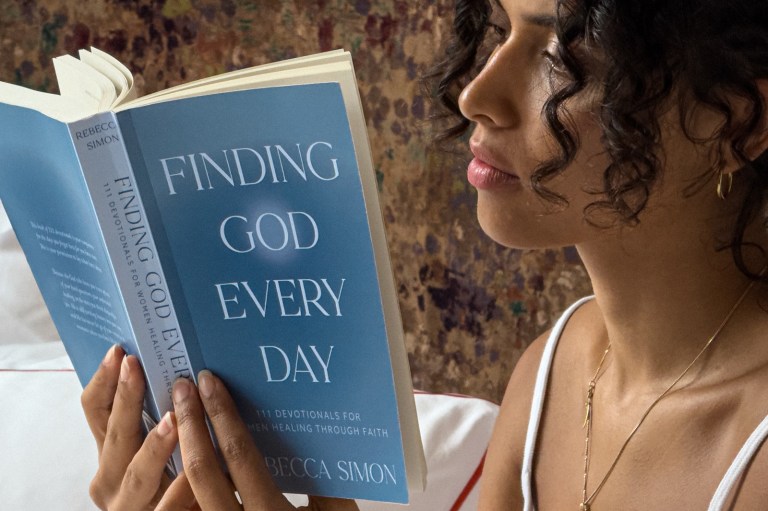
What To Do When Mistrust Causes You To Fear Intimacy And Commitment
Mistrust can come in many forms, from suspecting partners of infidelity, to fearing that they will abandon you emotionally or physically.

A nearly universal struggle for women who come from divorced homes is the inability to trust their partners. As children, their parents’ breakup taught them that relationships are fragile and prone to fail or end badly. Because of their past experience, daughters of divorce may approach relationships warily and have come to expect the worst.
Mistrust can come in many forms, from suspecting partners of infidelity, to fearing that they will abandon you emotionally or physically. Some women become “relationship junkies” looking for partners to be the salve for their wounds. Others freeze out the option of finding love, for fear of being hurt.
Here are 5 smart ways to repair broken trust:
• Challenge mistrustful thoughts. Ask yourself: is my lack of trust due to my partner’s actions or my own issues, or both? Be aware of ghosts from your past that may be triggering mistrust in the present.
• Trust your intuition and instincts. Have confidence in your own perceptions and pay attention to red flags.
• Gain awareness about how your reactions may be having a destructive impact on your relationship and take responsibility for them.
• If your partner lets you down, don’t always assume that a failure in competence is intentional – sometimes people simply make a mistake.
• Listen to your partner’s side of the story. Make sure your words and tone of voice are consistent with your goal of building trust.
Even if you find yourself in a reasonably healthy relationship, you may still be unable to trust your partner. Sometimes, he or is simply untrustworthy based on past actions, so you have reason to feel leery. Other times, the initial breakdown in your childhood has caused you to lack trust – even if your partner demonstrates trustworthiness.
Proving trust is so much more than catching your partner in a truth or a lie. To trust someone, you must have faith in them. You must have a strong belief and conviction that your partner will not hurt you. You must believe he or she is being honest with you, that you can depend on them, and that he or she has you as their first priority.
Can you say that you are truly confident in your partner? Confident, that they are truthful, faithful, and in every way present, in your relationship? Cultivating this sort of relationship is one of the greatest challenges for couples.
No person is perfect, but the best partner is the one who is willing to go on the journey with you. “The moment he would tell me he had to go on a trip for work, I’d be done,” says Ellen of Tom.
Although Tom wasn’t perfect, he was always open. And any transgressions he made were not so large that he and Ellen could not work through them.
“You think the worst in every possible situation. Thankfully, Tom has been very patient, the only patient person who I have dealt with. And he’s helped me to be [more trusting]. In the beginning, I didn’t realize how fearful I was until I was with him. Because he was worth me working on myself and being aware of what I was doing wrong,” Ellen says. “Before that, no one was ever worth it.”
Although every relationship is different, it is important for you, as a mistrustful person, to realize how you can be your own saboteur. Love is a leap of faith, and there are no guarantees.
This is true for all people, whether they have endured divorce or not. When your first reaction is to act from a place of mistrust, this shows a lack of confidence in your partner. In Ellen’s relationship with Tom, she realized that overall he is a reliable person and would not cheat on her, or go out of his way to hurt her. He has proven himself to be loving, kind, and trustworthy. By second-guessing Tom, or feeling anxious about his whereabouts, Ellen wasn’t holding up her end of the bargain in the relationship.
The scariest thing about falling in love is living with the knowledge that it might end. You’re faced with a choice. You can come at relationships from a place of love and trust, or you can choose to be suspicious, doubtful, and wary. The most important thing to consider is whether your partner is worthy of trust.
Have his or her actions matched their words? Does your partner treat you with respect? Are they dependable? Are they consistent and predictable? Is he or she faithful and truthful? If the answer to these questions is yes, you must choose to trust. It’s possible that you might end up getting hurt. However, if your partner has shown you trustworthy behavior, you should reward him or her by showing trust in return.
Learning to Trust is a Skill
One of the hardest things about trusting someone is learning to have confidence in your own judgment. Trust is about much more than finding signs that your partner has been unfaithful. It is about believing that he or she has your best interests at heart. Every person is born with the propensity to trust others but through life experiences, you may have become less trusting as a form of self-protection.
Take a moment to consider this: your partner is not solely responsible for creating mistrustful feelings. In most cases, you must take equal responsibility for creating an atmosphere of safety and security in relationships. Trust is a two-way street. In order for your relationship to move to a deeper level of trust and intimacy, your partner needs to have the ability to trust you, and you need to be trustworthy.
Truth be told, learning to trust is a skill that can be fine-tuned if you understand the root of your mistrust and have the courage to stop it in its tracts. It’s possible to adopt a mindset that your partner wants the best for you and won’t hurt or abandon you if he or she has shown through their actions and words that they are reliable. You can face your trust issues with optimism when you extend trust to those who deserve it and learn to trust yourself day by day.
Learn how Elizabeth overcame mistrust and made a choice to risk trusting a partner in this inspirational podcast interview. ![]()











